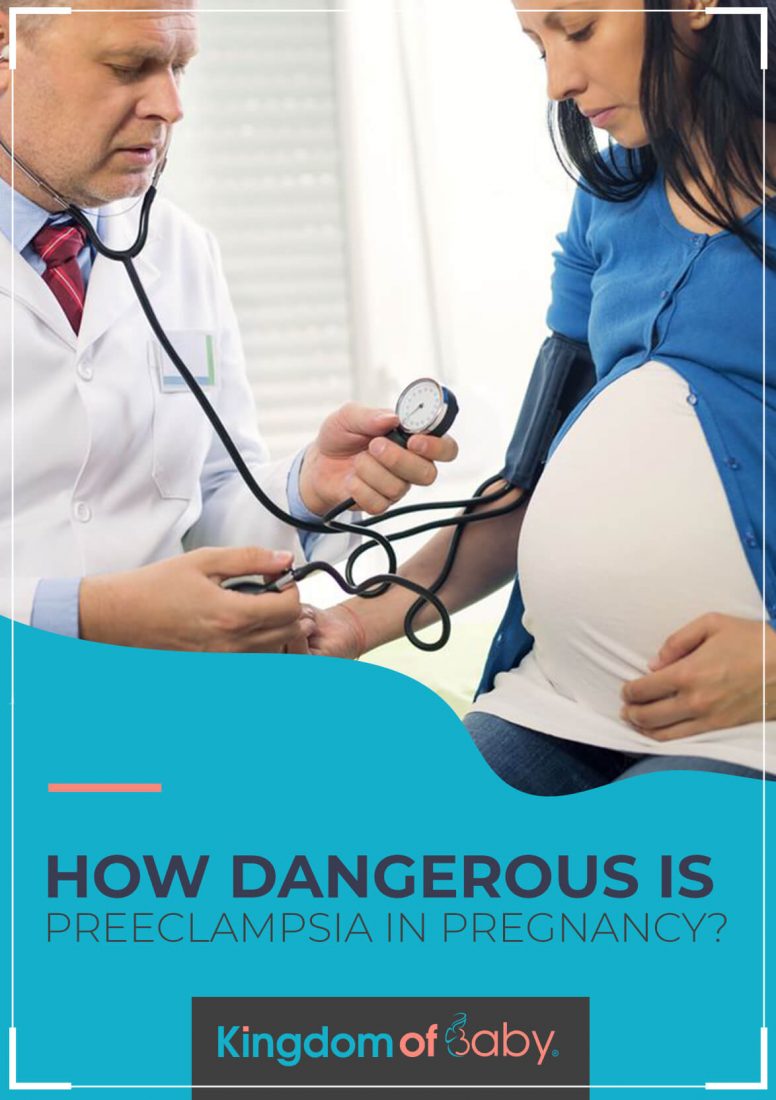
During pregnancy, a woman is in its most vulnerable situation. Preeclampsia in pregnancy is the most common complication that maternity doctors handle. It is a pregnancy condition where a sudden rise of blood pressure happens together with swelling of face, hands, and feet that occurs in the third trimester of the pregnancy.
If the preeclampsia is not given an immediate response, it will evolve to eclampsia. It is a condition where the pregnant mother will result in convulsion, coma and the worst is death. Preeclampsia is a rare case, but it can always happen to any pregnant woman. It can be avoided if the mother follows the prenatal appointments faithfully.
Preeclampsia in pregnancy: things need to know

- Roughly 5 percent of pregnancies are affected by Preeclampsia.
- If non-immediate and improper attention is given, it can evolve to eclampsia, a potentially life-threatening condition
- Causes are still unknown, but it is associated with blood vessels in the placenta
- Researches claim that genetics is one of the contributory factors of preeclampsia
Symptoms

There are cases that preeclampsia does not show symptoms. But the early signs can be:
- high blood pressure (hypertension)
- High protein in the urine (proteinuria)
In most cases, a pregnant woman will not be quick to know that she has these indications only to realize during the antenatal visit. Some women have the difficulty of making immediate adjustments to cope with the need to avoid preeclampsia because the findings came too soon.
There is 6 to 8 percent of pregnant women that has high blood pressure. But it does not spontaneously mean that they have preeclampsia. The indication is if there is a presence of protein in the urine.
Read also: The unveiling truth about heartburn in pregnancy and baby hair
A woman suffering from preeclampsia will have fluid retention (edema) with swelling of hands, feet, ankles, and face.
Swelling is the usual situation that happens to a pregnant woman in the third trimester. It generally occurs in lower parts of the body like ankles and feet in a milder case. You need to know that these symptoms are not preeclampsia. When preeclampsia happens, edema suddenly occurs and will be severe.
The following symptoms are also noticeable when preeclampsia evolves and becomes:
- blurry vision
- severe headaches
- malaise
- shortness of breath
- pain just below the ribs on the right side
- rapid weight gain due to fluid retention
- vomiting
- decrease of urine output
- reduction of platelets in the blood
- liver malfunction
Treatment

The hardest part of treating preeclampsia is that it will not be treated not until the baby comes out. The mother’s blood pressure should ease or else she will be at risk of having a stroke, severe bleeding, seizures and possibly the placenta will separate from the uterus resulting in death.
It is highly advised that a pregnant woman must attend the prenatal sessions. If preeclampsia is certain to take place, the following treatments are given:
- Anti-hypertensive drugs to lower blood pressure
- Anti-convulsants for severe cases to prevent a first seizure. Magnesium sulfate is given to the pregnant mother.
- Corticosteroids to improve the platelet and liver function and can prolong the pregnancy. It helps speed up the development of the baby’s lungs if ever the baby has to come out prematurely.
Read also: All you need to know about ear popping during pregnancy
If the pregnant woman is still far from her due and mild symptoms are found, complete rest is a must. By resting, the blood pressure will decrease to normal and surge blood flow to the placenta that will ensure the baby’s survival.
Some women are even advised to complete bed rest. Some are only allowed to sit in a chair, sofa, or bed, and all physical activities are not allowed. At this time, the doctor will closely monitor the baby.
Inducing labor
If preeclampsia in pregnancy is inevitable, the giving of birth of the baby as soon as possible is recommended. There will be two options–inducing the labor, or a cesarean delivery will be performed as quickly as possible. The mother will take magnesium sulfate for the uterine blood flow and to avoid seizures.
Read also: Phantom pregnancy false pregnancy or pseudocyesis guide
The diagnostics tests that you can expect the doctor will ask you to proceed:
- Blood tests will examine if the kidneys and the liver are functioning well as well as to see if the blood is clotting properly.
- Fetal ultrasound to check the baby’s progress and make sure she is appropriately growing.
- The non-stress test is a procedure that allows the doctor to check how the baby’s heartbeat reacts.
Risk factors that are associated with preeclampsia
- There is a high plausibility that preeclampsia will potentially occur in first pregnancies
- If there is a wide gap after the early pregnancy, it highly plausible that the second pregnancy will be at risk of preeclampsia
- When a woman gets pregnant from a new partner, then it surges the danger of preeclampsia than the second or third at the same
- If the mother of a pregnant woman had preeclampsia, then it is likely she will have the same situation.
- If a woman had preeclampsia in her first pregnancy, then the likelihood to experience the same situation is high.
- There is a high likelihood to experience the incidence if a woman is over 40 years old
- Women currently suffering from diabetes, high blood pressure, migraines, and kidney disease before pregnancy
- Preeclampsia is rating high among obese women.
- Preeclampsia is likely to occur for a woman is expecting two or more babies.
Read also: Reasons why a smallest pregnant belly exists
How to avoid preeclampsia?
- Regularly drink 6 and 8 glasses of water every day
- You avoid fried and processed foods
- You put limits and avoid eating salty food
- Do regular exercise
- Never drink alcohol and caffeine
- Do your feet elevated a few times per day
- Proper rest and relieve yourself from stress
- Do not forget to take the prescribed supplements and medications
Read also:
- What to Expect on the Last Two Weeks of Pregnancy
- Pregnancy Symptom: Reasons why Pregnant Women Snore
- Everything You Need to Know About Hypersalivation During Pregnancy


